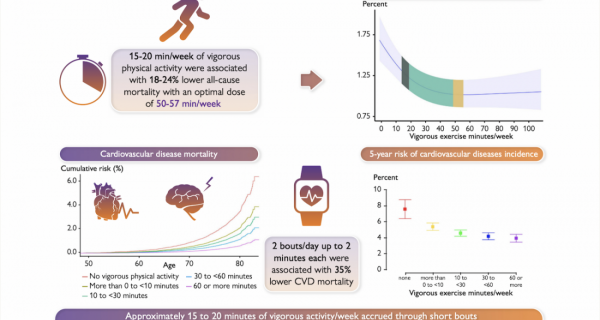Taking vitamin D might help prevent dementia, study finds
Researchers predict that by 2050 over 150 million people will live with dementia. Exposure to Vitamin D may help prevent it.

As of today, over 50 million people suffer from dementia and there still isn’t a cure that can stop or reverse its progression.
You’ve probably heard of the term “dementia” before, but what does it really mean? Is it a disease? According to the Centers for Disease Control and Prevention, dementia is not a specific disease but is rather a general term for the impaired ability to remember, think, or make decisions that interfere with doing everyday activities. Alzheimer’s disease is the most common type of dementia.
In line with existing research, a deficiency in Vitamin D may be a preventable risk factor that may affect the likelihood of suffering from dementia. Not only that, Vitamin D deficiency has been recognized as a worldwide health problem with over 1 billion people requiring more Vitamin D.
In a new study published in the Journal Alzheimer’s & Dementia: Diagnosis, Assessment & Disease Monitoring, researchers assessed dementia-free older adults over time for the link between vitamin D supplementation and dementia occurrence, while accounting for demographic, clinical, behavioral, and genetic variables.
Data used in the study was obtained from the National Alzheimer’s Coordinating Center (NACC) database. Exposure to vitamin D supplementation was based on the NACC medication form. Three formulations were considered: calcium–vitamin D, cholecalciferol, and ergocalciferol.
Across the entire sample, 2,696 participants progressed to dementia over ten years; amongst them, 2,017 (75%) had no exposure to vitamin D throughout all visits prior to dementia diagnosis, and 679 (25%) had baseline exposure.
The results show that exposure to vitamin D was associated with higher dementia-free survival and lower dementia incidence rates over 10 years. These findings were consistent across each vitamin D formulation: calcium–vitamin D, cholecalciferol, and ergocalciferol.
An interesting finding from the study is that while exposure to vitamin D was associated with significantly lower dementia incidence in both males and females, the sex-specific difference was also statistically significant. The effect of vitamin D exposure was greater in females than males. As the authors suggest, this finding might be explained by the associations of estrogen and activated vitamin D and declining levels of estrogen in aging females.
Professor Zahinoor Ismail, of the University of Calgary and the University of Exeter, who led the research, said: “Our findings give key insights into groups who might be specifically targeted for vitamin D supplementation. Overall, we found evidence to suggest that earlier supplementation might be particularly beneficial, before the onset of cognitive decline.”

































